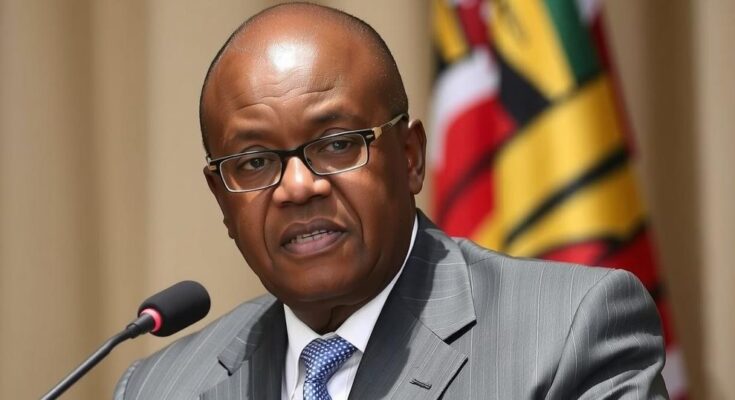Kenyan President William Ruto has pledged to address the abductions of government critics, a shift from his previous denials. Amid claims of state complicity, approximately 82 individuals have gone missing since protests erupted against a finance bill. Human rights advocates continue to express concerns about government involvement, as families of the missing yearn for accountability and the safe return of their loved ones.
Kenyan President William Ruto has recently reversed his previous refusal to acknowledge the ongoing abductions of government critics, promising to take action to end these violations. For months, Ruto and his administration denied the existence of such abductions, characterizing reports as falsified efforts to discredit his government. However, in a speech delivered in Homa Bay, he asserted, “What has been said about abductions, we will stop them so Kenyan youth can live in peace.” He emphasized the need for discipline and cooperation among the youth to foster national development.
Despite Ruto’s promises, human rights advocates continue to voice concerns over the disappearances, claiming that numerous activists and critics have been targeted by government intelligence. A total of 82 individuals are reported missing, with many believed to have been captured following the youth-led protests against a controversial finance bill, igniting increased scrutiny over government actions. It is important to note that while some individuals have resurfaced, others, like popular cartoonist Gideon Kibet, remain unaccounted for.
Notably, Bob Njagi, a prominent human rights activist and one of the abductees, has publicly accused the government of complicity in the abductions, characterizing Ruto’s statement as an admission of ongoing violations under the government’s watch. His experience of abduction and torture by security forces exemplifies the dire realities many activists face in Kenya today. Furthermore, Njagi remarked, “This is just damage control, but it does not absolve them of the previous abductions, and we want all the missing people to be set free.”
The involvement of security forces in these disappearances has raised serious alarm among citizens, and calls for accountability have intensified. While Ruto pledges to halt the abductions, many families of the missing remain skeptical. The atmosphere of fear and uncertainty persists, highlighting a broader problem of human rights in Kenya, prompting civil society organizations to demand stronger protections for individuals critical of the government.
The political climate in Kenya has become increasingly tense following widespread protests against government policies, particularly in relation to a finance bill that sparked youth-led activism. Disappearances of government critics have reportedly increased amid allegations of governmental complicity and intelligence operations targeting dissenters. Despite previous denials, President William Ruto is now facing mounting pressure to combat these human rights violations, which many believe are facilitated through state-sponsored intimidation. The situation reflects a significant concern regarding the treatment of opposition voices in Kenya, with accusations of torture, enforced disappearances, and a deterioration of civil liberties. As the government grapples with these accusations, the effectiveness of investigations into such cases remains a point of contention, raising questions about accountability and justice.
In summary, President William Ruto’s recent commitment to curtail abductions of government critics marks a critical moment in Kenya’s ongoing human rights crisis. While the president refrained from directly accepting responsibility for the disappearances, his acknowledgment signals potential changes in the government’s stance. However, given the persistent fear among citizens and the testimonies from affected individuals, the effectiveness of these promises will rely on actual governmental action against impunity and a commitment to uphold human rights.
Original Source: www.cnn.com




